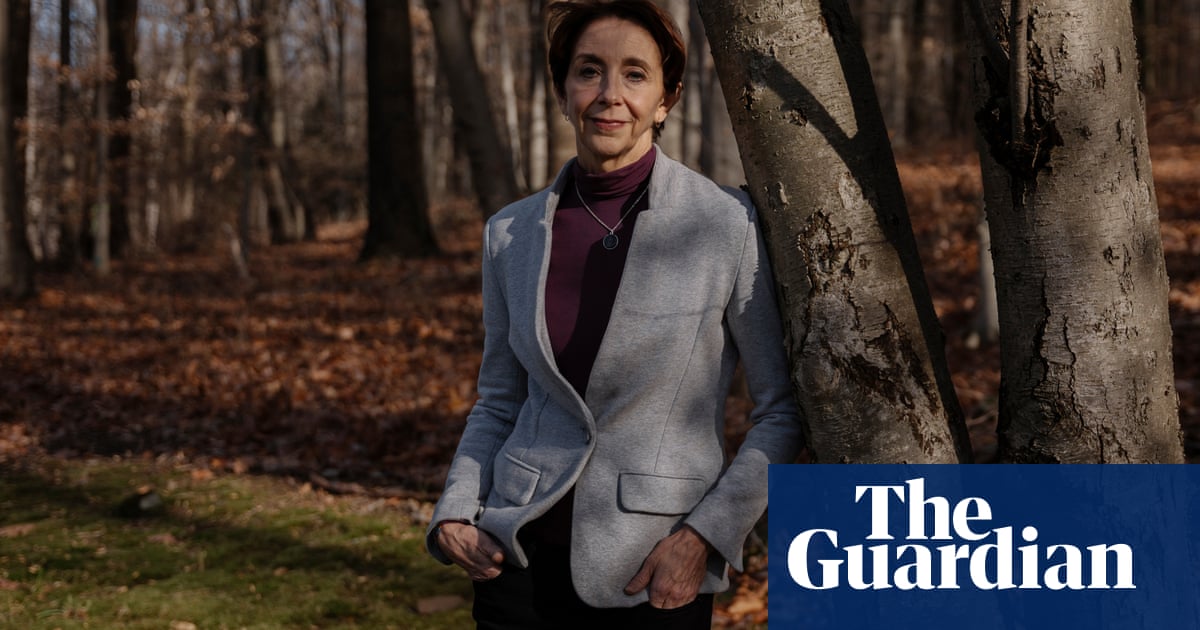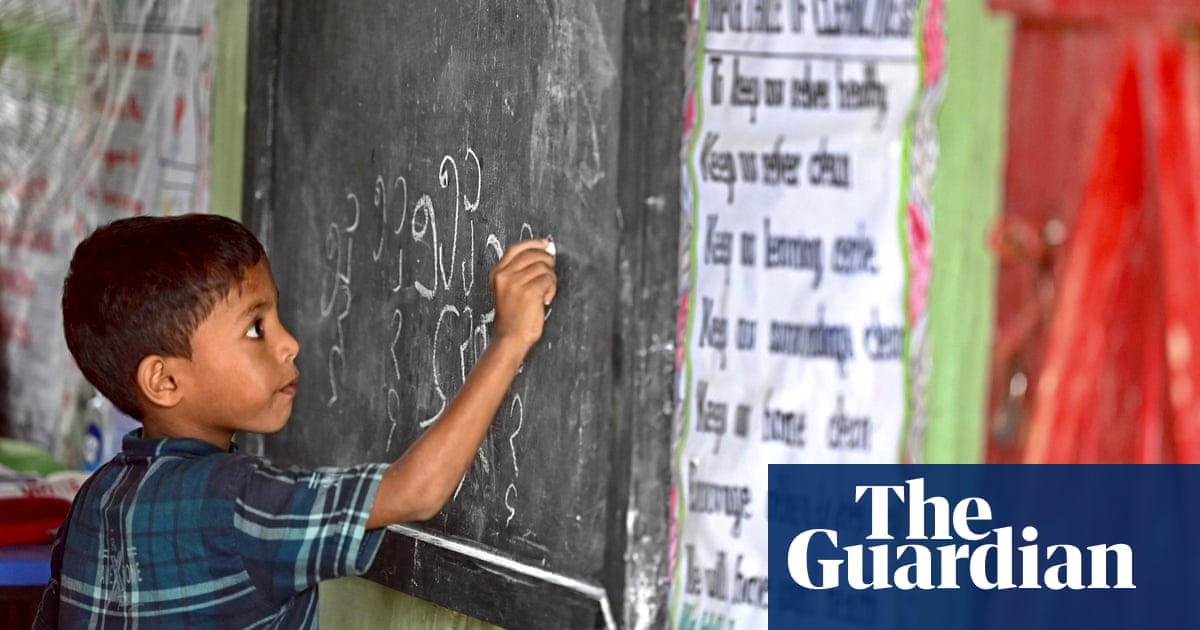Bhutan is a tiny country of mountains and clouds nestled between giants: it shares borders with China and India. Known as “the kingdom of happiness” because of its focus on measuring gross national happiness (GNH), its approach to development is based on the Buddhist idea of the “middle way”, or the pursuit of balance, rather than extremes. But lately, the balance has been off.
GNH, first measured by Bhutan in 2008, is calculated using surveys of 148 questions, conducted in person every few years. The most recent survey from 2022 sampled 1.4% of the population and gave the country an average happiness score of 0.781 out of one, a score that defines the Bhutanese as precisely 3.3% happier than they were in 2015.
But despite Bhutan’s cheerful reputation, the country is experiencing “unprecedented” levels of emigration, according to the ruling People’s Democratic party’s 2023 manifesto. Last year, 1.5% of the population moved to Australia to work and study. In 2019 an independent measure of happiness, the Oxford World Happiness report – itself inspired by Bhutan’s pioneering GNH – ranked the country 95 out of 156 countries, up from 97th in 2018, and down from 84th in 2014. It hasn’t been measured since.
Rising unemployment, rising migration
Bhutan is a little bigger than Belgium, is home to fewer than 800,000 people, and 85% of its land is forest. Its democracy is fairly young: Bhutan held its first elections in 2007, a year after its king, Jigme Khesar Namgyel Wangchuck, the fifth “Dragon King”, came to power, after his father, Jigme Singye Wangchuck, voluntarily gave up the throne.
Tourism, one of the country’s main sources of income, was brought to a standstill by the pandemic and has yet to fully recover: 2023 saw just a third of the number of visitors in 2019. Its tourist levy – or sustainable development fee – jumped to US$200 per person a day in 2022, before being halved in 2023.
Opportunities in the job market have declined, with the most recent figure showing just over half of women work, down from 61.2% in 2019, while youth unemployment – which has been steadily rising since 2004 – stood at 28.6% in 2022. One in eight Bhutanese lives in poverty.
Recently, the government invested millions of dollars in equipment for cryptocurrency mining, according to the World Bank. Cryptocurrency, which is extremely energy-intensive to mine, is very much at odds with the idea of Bhutan that the country promotes to the rest of the world: a place focused on sustainability in the environment and development, and the first carbon-negative nation.
This year the prime minister, Tshering Tobgay, also floated the idea of gross national happiness 2.0 – a model that places more emphasis on the economy – saying the government had “failed economically”.
But it isn’t just the economy: Bhutan ranks 90th in the world in terms of press freedom, down from 33rd, according to the 2023 World Press Freedom index. Almost a fifth of respondents to the 2022 GNH survey said they did not feel they had a right to join a political party of their choice.
Approached by the Guardian, one young Bhutanese person says he does not want to be interviewed for fear that he or those he worked with could get into trouble with the government.
Om Dhungel, a Bhutanese refugee who lives in Australia and has written a book about his experience, Bhutan to Blacktown: Losing Everything and Finding Australia, says the GNH concept is good but doesn’t reflect the government’s approach to the happiness – and human rights – of all Bhutanese. Formerly a senior telecommunications engineer in Bhutan, he remembers using GNH as an approach to putting phone towers in without disrupting the landscape.
“But at the same time, now we can see the hollowness of it,” he says. “Why would people leave a land of gross national happiness?”
As it looks to stem migration and attract tourism and investment, Bhutan is betting big on its reputation for mindfulness. In December last year, the Dragon King announced plans to build Gelephu Mindfulness City in the country’s south – an area with a history of displacement and what Human Rights Watch calls ethnic cleansing.
Taking up 2.5% of the country’s land, it will be made up of nine bridges, on which people can live and work
No dates have been announced, and it is unclear who, if anyone, is prepared to foot the bill: the contact page on the city’s website is aimed at people who “would like to join us in the co-creation of this exciting endeavour”.
The city is set to be built over an area in which 10,000 people, many of them farmers, already live. (Farmers rate the lowest in Bhutan’s GNH surveys, with only 33% classified as happy, according to the Asian Development Bank).
Residents fear they could be displaced or forced off their land with no, or unfair, compensation, says Ram Karki, a Bhutanese refugee human rights activist who lives in the Netherlands. Dhungel echoed this.
The government placed a moratorium on selling land in Gelephu in July 2023, months before the project was announced. It “should be a huge concern for the international community”, Karki says.
“In Bhutan people cannot speak against anything that goes against the wishes of the king or the government,” he says. “And that is the king’s project.”
Karki is among the Bhutanese who fled the country in the 1980s and 90s, after a census that sought to determine who was ethnically Bhutanese. Those deemed to be ethnically Nepali – most of whom lived in southern Bhutan – were pressured into leaving, says Susan Banki, an associate professor at the University of Sydney, who has written a book about Bhutanese refugees.
A sixth of the population left the country and, more than 30 years later, 108,000 Bhutanese are still living in refugee camps in Nepal. Some of those who organised protests, refused to leave or, claims Dhungel, were simply prominent members of their communities were arrested and tortured. Today, Bhutan still has 34 political prisoners. Human Rights Watch has for years appealed for their release and says most were “convicted of political offences following unfair trials”.
Dhungel, himself a Bhutanese of Nepali ancestry, claims some of the land earmarked for the mindfulness city has already been illegally required. He used to have land there, for example, which he says was taken by the government when his father and brother were imprisoned and tortured. And people he speaks to back home have legitimate fears of further displacement.
“I think the international community has to take a hard look at how they have actually done damage by supporting the government,” says Dhungel.
Average national happiness
Chimmi Dorji is the president of the Association of Bhutanese in Perth, Australia. Reports of an exodus from Bhutan are overblown, he thinks – it is just part of modern life that people travel and study or work in different countries. In his experience, the Bhutanese who come to Australia – he moved here with his wife, who is doing a master’s in community development – plan to return home.
“It’s paradise on earth,” he says.
But the large number of Bhutanese who left in the 1980s and 90s is also among the reasons the economy is struggling today, says Dhungel. “A significant number of people with skills had to flee the country. That was a big brain drain.”
Jan-Emmanuel De Neve, professor of economics and behavioural science at Oxford and one of the authors of the annual World Happiness Report, says that without a certain level of economic development, people don’t tend to rate themselves as happy. Bhutan’s own figures show this – those its surveys find happiest are those who are wealthiest, according to the Asia Development Bank.
“We can’t get around economic development,” says De Neve. It is an important part of people’s wellbeing, and Bhutan is “quite right” to focus more on per capita GDP, he says.
The idea people have of gross national happiness, Banki says, leads to the “Shangri-La-zation” of the country. That Bhutan is a particularly happy place is just that – a fiction. The Land of the Thunder Dragon is, at the end of the day, just a country.
It is a country that Dhungel – who, like all Bhutanese refugees, is forbidden from returning to – wishes he was allowed to visit. Even more so, he hopes that some day he will be allowed to show it to his children.

.png) 2 months ago
19
2 months ago
19













































